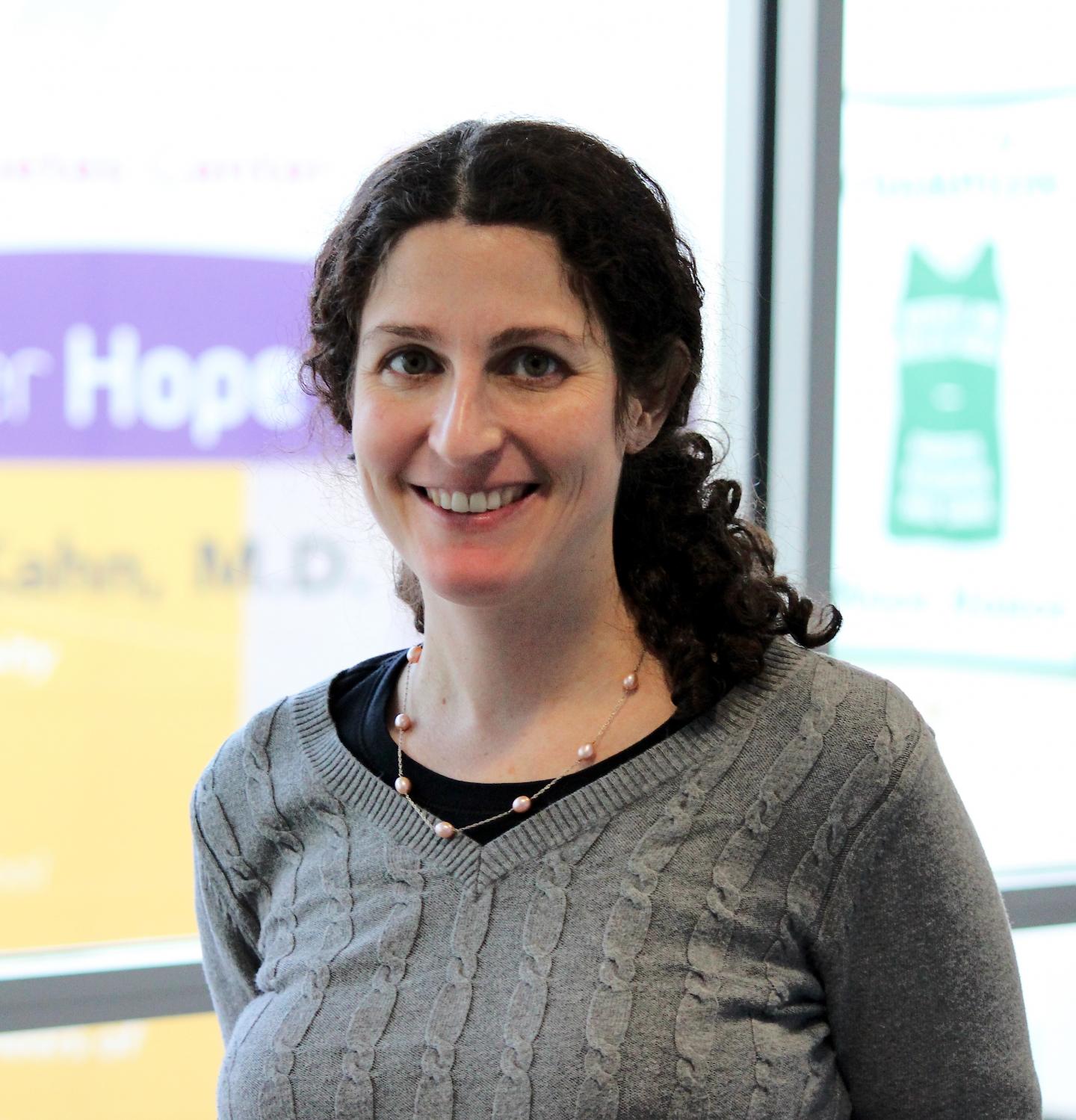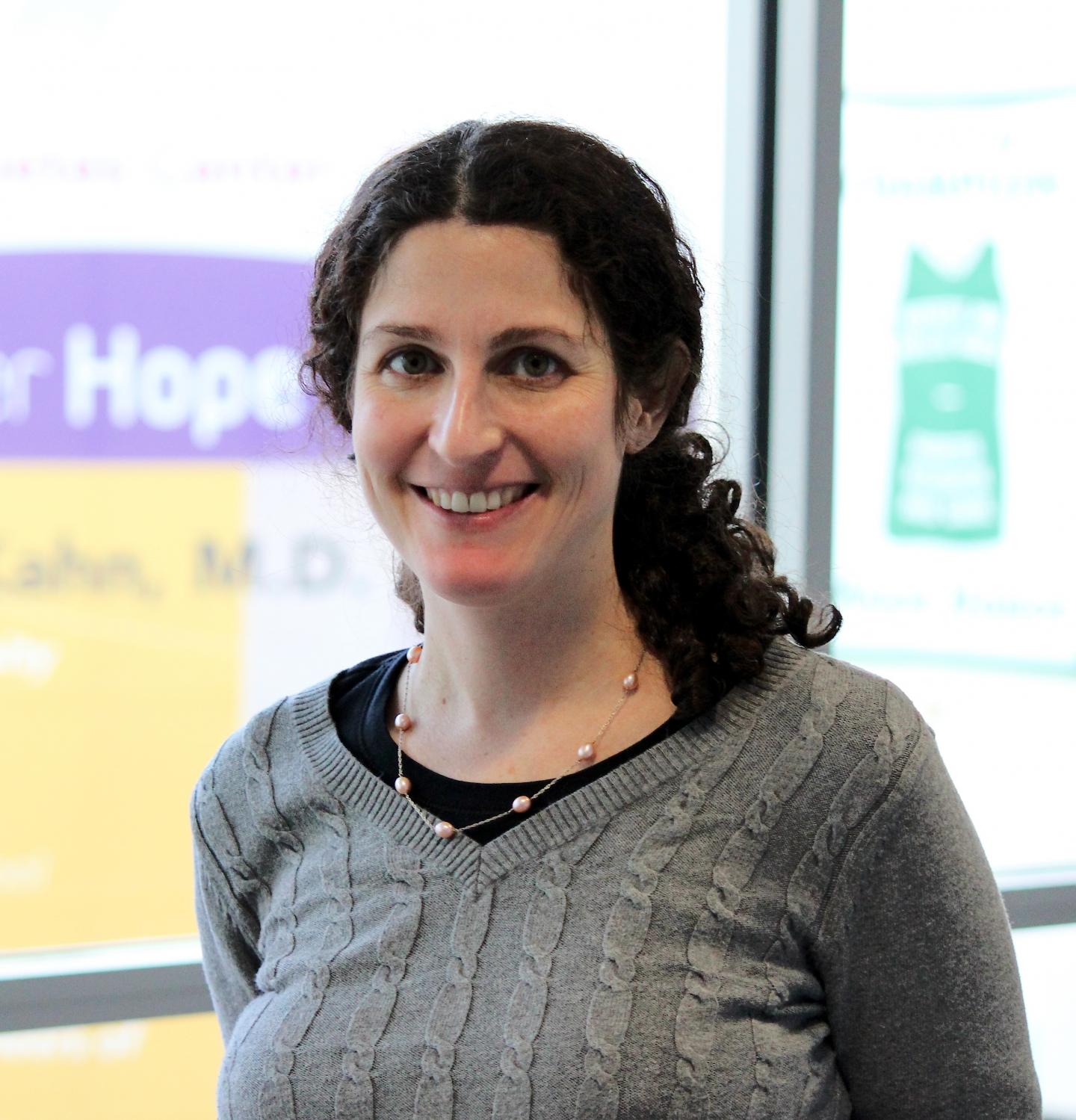
Credit: Stephanie M. McPherson
BOSTON – (October 11, 2018) – People with type 1 diabetes are far more likely to develop cardiovascular disease than those without diabetes. Their risks climb even higher if they show signs of hypertension (high blood pressure) or dyslipidemia (unhealthy levels of cholesterol or triglycerides).
Interviewing both teens and parents, Joslin Diabetes Center researchers have identified strategies to help teens with these conditions manage them better, says Michelle Katz, MD, MPH, lead author on a paper about the work recently published in Pediatric Diabetes.
Among the key strategies, providers should offer realistic and specific guidance, and teens should be encouraged to recruit regular exercise partners, says Katz, who is associate director of Joslin's Pediatric, Adolescent and Young Adult Section.
Offering realistic and specific guidance begins with delivering basic knowledge about the conditions, says Katz, who is also assistant professor of pediatrics at Harvard Medical School. Asked about the risks of high blood pressure, for instance, teens might say that it could give you a headache, rather than realizing it might lead to a heart attack many years from now. Teens also often hoped that the condition might be "fixed" rather than needing to be continually managed.
"There's an immediacy in how teens view things," Katz says. "So we try to reach them where they're at, and think about what will motivate them. For example, a lot of heart-healthy behaviors may improve how they look and feel. Some teens may be motivated by the prospect of losing weight, or having more energy, or potentially having clearer skin."
"Teens also look for detailed personalized guidance," Katz says. "They want to know, 'What is my personal risk? What are my risk factors and what can I do about them? What are the foods that I can eat, what's a good menu for me, and what are good activities for me?'"
Exercise is just as crucial for heart health for teens as it is for adults. "What makes this easier is being on a sports team, having some sort of regularly scheduled exercise, or having a friend to go to the gym with," Katz says. "You always encourage teens to do the types of activity they like. Sometimes you have to get down into the details with them to coax them along: Do you enjoy playing basketball, do you have another friend who enjoys playing basketball, do you have a playground in your neighborhood or can you go to the local 'Y'?"
Based on semi-structured interviews with 22 teens who had type 1 diabetes (45% with dyslipidemia) and 25 parents (40% who had teens with dyslipidemia), the study highlighted issues that were viewed quite differently by teens and their parents.
Teen and parent perceptions varied, for example, about when to start heart protective medicines if and when they were recommended by a physician.
"Many parents were very hesitant to think about starting a teenager on medications; they really viewed that as very much a last resort," Katz says. "Some parents were worried about side effects. Some parents were worried that these medications are lifelong therapies and they are for conditions associated with older people." Teens, in contrast, were more likely to see the medicines as simply one more addition to their daily regimen of medications.
Teens also were more likely than parents to suggest that their own homes weren't the healthiest environments for food. As parents typically buy the groceries and do the cooking, making better choices calls for a team effort, Katz noted.
The Joslin team is now running a pilot study to encourage heart healthy behaviors in teens with type 1 diabetes and additional cardiovascular risk factors, using lessons learned from the study.
"We recognize that teens may not have a lot of knowledge, so we start our discussions at a pretty basic level, going over what blood pressure and cholesterol are," Katz says. "We encourage really specific goal-setting, drilling down on that with them. We're also putting teens on an exercise app with virtual exercise buddies, to help give them some motivation."
###
Lori Laffel, MD, MPH, chief of Joslin's Pediatric, Adolescent, and Young Adult Section and professor of pediatrics at Harvard Medical School, was senior author on the paper. Other Joslin contributors include Zijing Guo and Alina Cheema. Lead funding for the research came from the National Institutes of Health.
About Joslin Diabetes Center
Joslin Diabetes Center is world-renowned for its deep expertise in diabetes treatment and research. Joslin is dedicated to finding a cure for diabetes and ensuring that people with diabetes live long, healthy lives. We develop and disseminate innovative patient therapies and scientific discoveries throughout the world. Joslin is an independent, non-profit institution affiliated with Harvard Medical School, and one of only 11 NIH-designated Diabetes Research Centers in the U.S.
For more information, visit http://www.joslin.org or follow @joslindiabetes | One Joslin Place, Boston, MA 617-309-2400
Media Contact
Jeffrey Bright
[email protected]
@joslindiabetes
http://www.joslin.org
Related Journal Article
http://dx.doi.org/10.1111/pedi.12771





